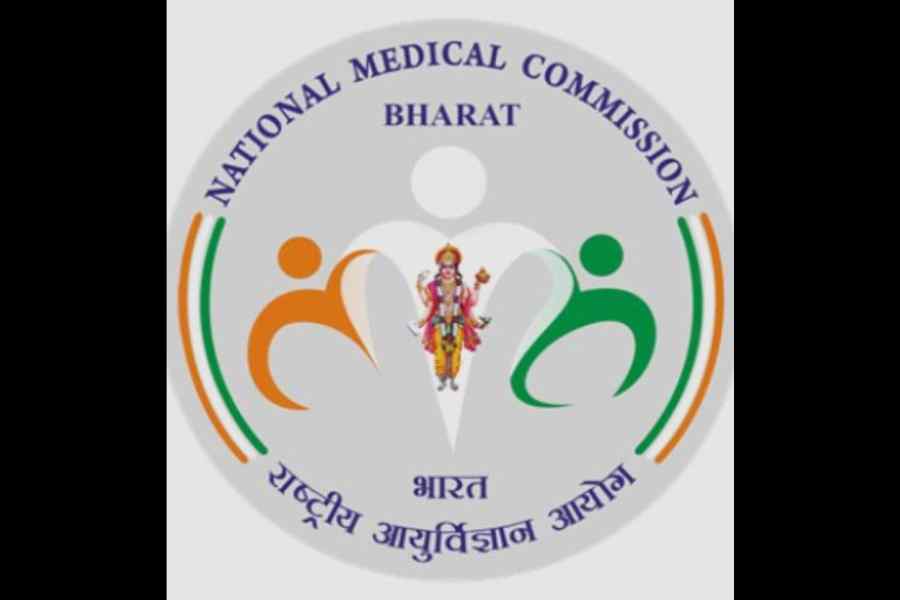Sections of doctors have criticised a decision by India’s apex medical regulatory authority to adopt Dhanvantari, the Hindu god of medicine, on its logo, questioning the use of an image associated with a specific religion.
The Indian Medical Association (IMA), the country’s largest body of doctors, has asked the National Medical Commission (NMC) to revise its logo, asserting that the medical profession, including all its regulatory and statutory bodies, has to be “religion-neutral”.
“The new logo of the NMC is in contradiction with our fundamental values as doctors,” the IMA said in a statement signed by its national president Sharad Agarwal and national secretary Anil Nayak.
“It is not in conformity with the oath and the duty of doctors which is not towards any particular religion. Such a logo is also inconsistent with the dignity and decorum of an institution such as the NMC,” the IMA said.
A member of the NMC — a regulatory body for medical education and medical practice established in 2020 to replace the Medical Council of India (MCI) — said the commission had adopted the new logo after a process of public consultations.
The MCI had a logo that displayed Greek religious imagery and was used for decades in India, said Yogender Malik, member of the NMC’s ethics and medical registration board.
“We felt there was a need for a new logo. After wide public consultations, the NMC passed this logo…. We also decided to colour Dhanvantari’s image to make it clearly visible and look good when printed,” Malik said.
He said he did not understand why there was a controversy over the image.
The IMA said it had been compelled to express its “strong objection and disapproval” of the new NMC logo, which “is contrary to our fundamental ethos and the values carried on for centuries by our great nation”.
“The logo of any national institution ought to capture the aspirations of all our citizens in an equal manner and by remaining neutral in all respects thereby eliminating any possibility of any part or section of society feeling aggrieved in any manner,” the IMA said.
Some doctors have interpreted the emergence of Dhanvantari on the NMC logo as a symbolic move in line with the Narendra Modi government’s plans to “mainstream” or “harmonise” ayurveda and other traditional systems of medicine with modern medicine.
The Centre has said it plans to open “integrative medicine centres”, where different systems of medicine “complement each other”, at all government medical establishments. An integrated medicine centre opened at the Safdarjung Hospital in New Delhi earlier this year.
Sections of doctors have said they are concerned about such efforts because many traditional medicine treatments have not been evaluated through scientific methods.
Some say the logo appears to be part of broader efforts to inject credibility into traditional medical systems by “piggybacking” on modern medicine.
“Instead of addressing core issues affecting medical education and the practice of medicine, the NMC is diverting attention through potentially controversial decisions, such as this new logo or its suggestion that medical students should do yoga for 10 days a year and be introduced to the Charak Shapath,” said K.V. Babu, a Kerala-based doctor.
The Charak Shapath is a pledge attributed to Charak, an ancient Indian physician who lived before AD 100 and is viewed as one of the primary contributors to ayurveda.
Babu had earlier this year complained to the Union health ministry, saying NMC members had violated the commission’s own rules by not making their assets and liabilities public.












